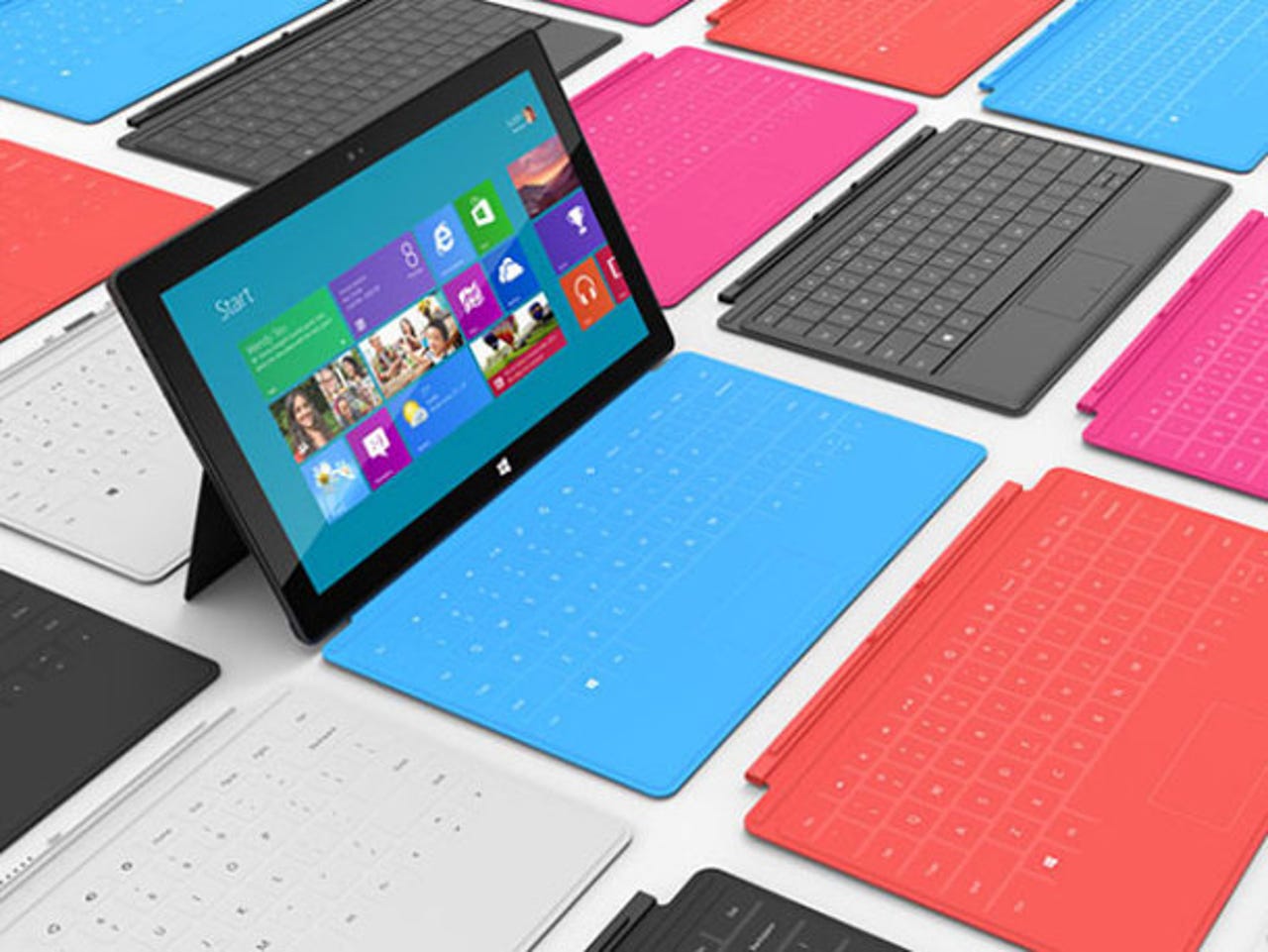Scuttlebutt: Surface tablet with Windows Pro the favored flavor


Microsoft has accomplished something few thought it was capable of doing with the unveiling of the two Surface tablets running Windows 8. The folks in Redmond have shown a compelling design for tablets, and in two versions to appeal to everyone. While few non-techies are aware of the upcoming Surface tablets, those I have spoken with who are anxious to see the Surface are overwhelmingly behind the Pro version.
Windows 8 is written from the ground up to work on any type of computer, with a special focus on the popular tablet form. The Metro interface is a touch-optimized UI aimed at getting Windows onto tablets of all types.
The Surface tablets from Microsoft will come in two versions, one running Windows RT and the other Windows 8 (Pro). The RT version is the one for the ARM platform, the mobile computing platform running many tablets on the market. It is the full mobile version of Windows that will use Metro apps purchased from the Microsoft app store.
The other Surface tablet will run full Windows 8 and will be Intel-based. This version of Windows is capable of running both Metro apps and legacy apps, similar to current Tablet PCs in function. It will run on tablets the same as it does on desktops and laptops, with touch control thrown into the mix.
The Pro version of the Surface tablet is overwhelmingly the version that most folks I have discussed them with plan to buy. This surprises me somewhat, as it indicates that these folks are willing to pay quite a bit more for a tablet than those going the RT route.
Microsoft has stated the RT version of the Surface tablet will be price competitive with other tablets, which implies a $500 range. It also mentioned that the Pro version of Surface will compete in price with Ultrabooks, which implies a premium of hundreds of dollars over the RT model.
The folks anxious for a Surface Pro, and I've corresponded with lots of them, think that full Windows is the way to go even in the tablet form factor. They are willing to pay a big premium for that functionality, and in fact feel Windows RT is too restrictive for their needs.
It leads me to question how successful Windows RT may be, if most of the folks who want a Windows tablet don't like the mobile version. It also makes me wonder if Windows 8 on tablets will live up to the expectations of these people. Windows on tablets is nothing new, but few of those planning on getting a Surface Pro I have spoken with previously owned a Tablet PC.
I suppose the thinner form of the Surface appeals to many over the old, clumsy Tablet PC. That's a good thing, but it's going to come down to how good Windows 8 is on the slim tablet with external keyboard. The Surface Pro tablet is not going to be cheap by market standards, and buyers are going to be demanding in the functionality of the OS on the tablet.
The ability to run legacy apps is useful, but as we experienced with the Tablet PC if apps aren't written for the tablet (and few are) they aren't very good to use on a touch tablet. A lot of new Surface Pro buyers may run into this headfirst, and the reaction may be something Microsoft must deal with.
Windows has a natural fit for the enterprise, and the Surface Pro could be the desired flavor for that purpose. I'm pretty sure Microsoft really wants to crack into the mainstream consumer market, and the Surface RT would be the way to do that. Microsoft will have to figure out a message to downplay the ability to run legacy apps based on the people I speak to about the Surface.
Related:
- Ecosystem lock-in just may break the Surface
- Microsoft Surface tablets: A natural fit for healthcare
- Surface: Why Microsoft’s big mystery turns out to be a big mistake
- With Surface tablet, Microsoft breaks tradition
- Eight new platform announcements for Windows Phone 8
- Microsoft’s Windows Phone 8: There’s good news and bad news
- Microsoft Surface tablets: Obviously designed for me
- Will Microsoft Surface for Windows 8 Pro tablets be competition for Ultrabooks?
- Okay, let me get this straight. Did Microsoft just kill the Windows tablet OEM market?
- Surface: Microsoft, What the Hell is Wrong With You?